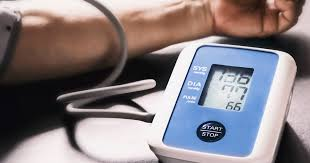In an era where mental clarity and cognitive performance are more crucial than ever, maintaining optimal brain health has become a top priority for many individuals. The good news is that you do not need complex routines or costly interventions to support your brain’s vitality. Instead, incorporating simple daily moves into your routine can significantly enhance your cognitive function, memory, and mental resilience.
This comprehensive guide will explore practical, evidence-based strategies designed to boost brain health through accessible daily activities. Whether you are a busy professional, a student, or a retiree, these straightforward habits can make a profound difference in your mental well-being.
The Importance of Brain Health
Your brain is the command center of your body, responsible for controlling thoughts, emotions, memories, and bodily functions. As we age, brain health naturally declines, but lifestyle choices can mitigate this process. Engaging in regular physical activity, maintaining social connections, and stimulating your mind are proven ways to preserve and enhance cognitive function.
Research indicates that simple, consistent movements can promote neuroplasticity—the brain’s ability to reorganize itself by forming new neural connections. This adaptability is essential for learning, memory, and recovery from injury.
Simple Daily Moves to Enhance Brain Health
1. Incorporate Aerobic Exercise
Why it matters: Aerobic activities increase blood flow to the brain, delivering vital oxygen and nutrients that support neuron health. They also stimulate the release of neurotrophic factors like Brain-Derived Neurotrophic Factor (BDNF), which promotes neuronal growth.
Examples:
- Brisk walking or jogging
- Cycling
- Swimming
- Dancing
Implementation tip: Aim for at least 30 minutes of moderate-intensity aerobic exercise most days of the week. This can be broken into shorter sessions if needed.
2. Practice Mindful Movement and Balance Exercises
Why it matters: Balance and coordination exercises engage the cerebellum and enhance neural pathways involved in motor control and spatial awareness. Mindfulness practices also reduce stress, a known detractor of brain health.
Examples:
- Yoga poses focused on balance (e.g., Tree Pose, Warrior III)
- Tai Chi routines
- Simple standing balance exercises (standing on one foot)
Implementation tip: Dedicate 10-15 minutes daily to mindful movement. Combining physical postures with breathing enhances cognitive engagement.
3. Engage in Cognitive Challenges
Why it matters: Mental stimulation fosters neuroplasticity. Learning new skills or challenging your brain with puzzles and games can strengthen existing neural networks and create new ones.
Examples:
- Learning a new language or instrument
- Solving crosswords and Sudoku
- Playing strategic games like chess or brain-training apps
Implementation tip: Set aside time each day to engage in cognitively stimulating activities, aiming for at least 15-20 minutes.
4. Incorporate Breathing and Meditation Practices
Why it matters: Controlled breathing and meditation reduce stress levels, lower cortisol, and promote neural growth in the hippocampus—crucial for memory formation.
Examples:
- Deep diaphragmatic breathing (e.g., 4-7-8 technique)
- Guided meditation sessions
- Mindfulness meditation focusing on present-moment awareness
Implementation tip: Spend 5-10 minutes daily on breathing exercises or meditation to cultivate mental clarity and emotional resilience.
5. Prioritize Physical Postures that Stimulate Brain Regions
Certain postures and movements uniquely activate specific areas of the brain. For instance, inversions and head-down positions increase blood flow to the brain, supporting cognitive health.
Examples:
- Downward Dog pose in yoga
- Gentle head tilts and rotations
- Neck and shoulder stretches that promote circulation
Implementation tip: Integrate these movements into your daily stretching routine, especially if you spend prolonged periods sitting.
Additional Lifestyle Habits for Optimal Brain Function
While daily physical and cognitive activities are foundational, other habits complement these moves:
- Maintain a balanced diet rich in omega-3 fatty acids, antioxidants, and vitamins.
- Ensure adequate sleep to facilitate memory consolidation.
- Stay socially engaged to stimulate emotional and cognitive centers.
- Limit stress through mindfulness and relaxation techniques.
- Avoid excessive alcohol and substance use, which impair neural function.
Day Activity Duration Focus Area
Monday: Brisk walking + mindfulness breathing 30 mins + 10 mins , Aerobic + Stress reduction
Tuesday: Yoga balance poses + brain puzzles , 20 mins + 15 mins , Balance + Cognitive challenge .Wednesday: Cycling + meditation, 30 mins + 10 mins Aerobic + Emotional resilience
Thursday: Learning a new language + stretching , 20 mins + 10 mins ,Cognitive + Blood circulation Friday: Swimming + strategic games , 30 mins + 15 mins , Aerobic + Mental agility
Saturday Tai Chi + deep breathing | 20 mins + 10 mins | Balance + Stress management
Sunday: Rest or leisure activities that stimulate the mind, Varies , Relaxation + Cognitive stimulation
Diagram of Brain Areas Activated by Different Moves
- Aerobic exercise: enhances overall blood flow, impacting the hippocampus and prefrontal cortex.
- Balance exercises: stimulate cerebellum and proprioceptive pathways.
- Mindfulness and breathing: promote activity in the prefrontal cortex and reduce amygdala-driven stress responses.
Supporting your brain health does not require complicated procedures or expensive interventions. By integrating simple daily moves—such as aerobic exercise, mindful movement, cognitive challenges, and stress reduction techniques—you can substantially bolster your cognitive resilience and mental acuity. Consistency is key; even modest, everyday efforts accumulate to produce significant long-term benefits. Prioritize these habits to enjoy a sharper, more resilient mind today and in the years to come.
Start implementing these simple daily moves now and experience the profound impact they can have on your brain health.
Discover more from Healthinfo24.com
Subscribe to get the latest posts sent to your email.




Anonymous
Very informative